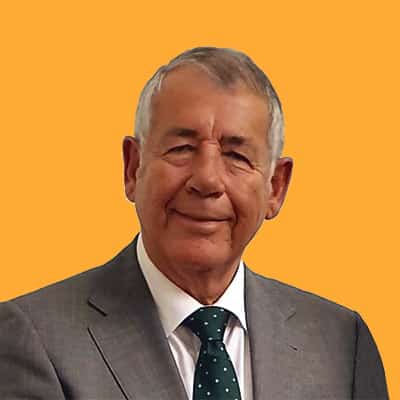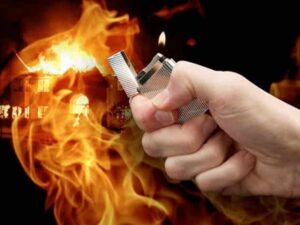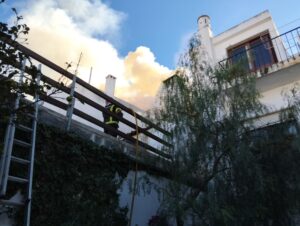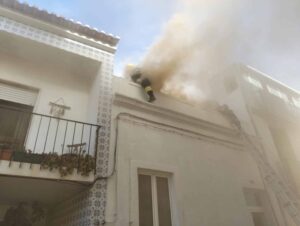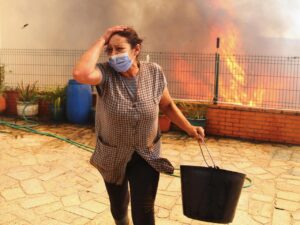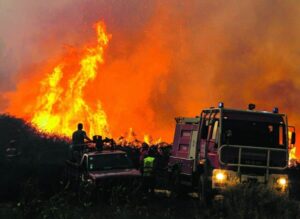Now that we are virtually into the summer period and the weather has become much hotter, it is a good time to remind ourselves of the measures to prevent fires as well as the laws concerning the burning of rubbish etc.
This is not only necessary for our own protection and that of our property, but also to minimise the risk to others including, of course, the emergency services who put their lives at risk in dealing with such incidents.
If this is not enough to remind people, then the ANPC Civil Protection Authority, with whom Safe Communities Algarve has recently been undertaking a series of wildfire prevention presentations, has reported that from January 1 to mid-June this year, 3,500 fires were registered, of which 2,113 were in woodland areas and 768 in forests. On June 15, for instance, when much of Portugal was experiencing temperatures of over 30ºC, there were a total of 105 forest fires involving over 200 firemen, 554 vehicles and 40 air borne missions – and that’s just one day!
The tragedy of all this is that just 1% of all such fires are through natural causes, the remainder being caused either deliberately or through negligence.
Critical wildfire period
This is the period each year announced by the Minister of Agriculture, Rural Development and Fisheries, where special measures are put in place to prevent forest fires due to exceptional meteorological conditions. During this period, and outside the critical period when there is a very high or maximum risk of forest fire, you are not allowed in rural areas to: smoke, make fires or bonfires; burn agricultural or forest debris; undertake grassland or renewal burning or operate tractors, machines or heavy transport vehicles that do not have fire extinguishers, spark and ember retention systems or flame dampers in the exhaust pipes or chimneys.
This year the critical period is from July 1 to September 30.
Burning fires outside the critical wildfire period
In order to burn debris or pasture renewal burning outside the critical period or when the wildfire hazard is not very high or maximum, you should contact your local council or the Forestry Office to obtain permission. Anyone contravening this is liable for a fine up to €60,000. You should also: avoid periods of strong winds that increase the intensity of the flames, which may ignite surrounding areas; avoid the hottest days when debris and pasture are drier; avoid fires in the proximity of trees, piles of firewood, gas containers or other highly-inflammable material and overhead electric lines, and avoid burning large piles of debris and instead burn several small piles.
Interestingly, the large forest fire that occurred at Mexilhoeira Grande near Portimão on June 15 appears to have been caused by a short circuit in a wood stacking vehicle used to clear the area to reduce fire risk – although investigations are still in progress.
To check the daily fire hazard you can contact the local council, Forestry Office, or easier still the Portuguese Weather Institute (Instituto Nacional de Meteorologia) on the internet. The latter shows the fire risk by municipalities throughout Portugal for the day and following day.
Protecting your house against wildfires
The National Forest Authority gives 10 basic steps for the protection of properties in isolated rural areas covering the following topics, with details available on the Safe Communities Algarve website: knowing the problem; reducing the most flammable vegetation; thinning and pruning; creating non-flammable pavement area; ensuring unobstructed access; ensuring safety in your house and being prepared in case of fire.
It is also important to note that the management of these areas is enforceable by law and there are heavy fines for non-compliance.
The role of GNR SEPNA
SEPNA play a vital role in forest fire prevention and environmental protection as well as the investigation into the causes of forest fires. During seminars recently held by Safe Communities Algarve, many questions have been raised concerning what action residents should take where a neighbour’s land is overgrown within 50 metres of their property, and for whatever reason the neighbour refuses to clean the land or cannot be contacted. In these circumstances, residents should either contact their local council or SEPNA. The latter have reaffirmed that they will take action by visiting the site and contacting the owner concerned. The best way to contact SEPNA is by email at sepna@gnr.pt or by phone at 808 200 520. Some of the larger GNR stations have SEPNA units attached to them.
Contacting the Emergency Services
In case of fire or any other emergency, you should dial 112. For forest fires you can also dial 117. These are for emergency use only and should not be used for non-emergencies. Simply state the nature of the emergency, your name and exactly where you are. The operator’s standard of English is good.
If you need to contact the Bombeiros in the Algarve, the contact details for each municipality can be found by visiting the Safe Communities Algarve website. Do not phone them to report emergencies as all calls should be made to the emergency numbers.
Monitoring fires through the internet
The ANPC (Civil Protection Agency) is the authority responsible for the coordination when dealing with major emergencies including forest fire outbreaks and the resources involved in firefighting. As far as the Algarve is concerned, the ANPC has a coordination centre based in Faro, which is manned by staff from other authorities such as the GNR.
All major fires are plotted and information updated regularly. If you wish to check if a major forest fire has broken out or the progress in fighting fires, then you can do so by visiting the ANPC website directly.
In case of major incidents, the SCA’s News/Events page will provide daily information including public appeals such as calls for donations which have been made by the Bombeiros, Civil Protection Agency and other authorities.
Property insurance – Fires
It goes without saying that if you live in a rural area, having property insurance including the risk of fires is very important. It is also important that you check your clauses carefully, as some elements of protection of property are mandatory.
For instance, one clause sometimes used, “Law applicable to contract”, is very general, but if you are not compliant with the laws concerning the protection of your home, this could invalidate the insurance in the event of a claim. Advice is to check with your insurance company or broker concerning any clauses you should be aware of in the event of a fire claim.
Operation “Safe Forest”
The GNR is conducting Operation “Safe Forest” until October 31 2014, involving patrolling and surveillance of forest areas to prevent and detect the outbreak of forest fires and detect illicit activities against forest areas. This will involve the deployment of 591 personnel from the Military Intervention Group (GIPS) and 948 from the Service Protection of Nature and Environment (SEPNA), who validate and measure the burnt areas and investigate the causes of fires.
The problem of forest fires in Portugal has become increasingly important, especially due to the negative impact of fires on natural resources. As such, it is important to raise awareness, encourage good practices and respect for nature, ensuring ultimately sustainability and the future of our forests.
Safe Communities Algarve has produced a newsletter on this subject which can be found at www.safecommunitiesalgarve.com/newsletters/
By David Thomas
|| features@algarveresident.com
David Thomas is a former Assistant Commissioner of the Hong Kong Police, consultant to INTERPOL and the United Nations Office on Drugs and Crime. In October 2011 he founded Safe Communities Algarve an on-line platform here in the Algarve to help the authorities and the community prevent crime. It is now registered as Associação Safe Communities Algarve, the first association of its type in Portugal. 913 045 093 | www.facebook.com/scalgarve
www.safecommunitiesalgarve.com

